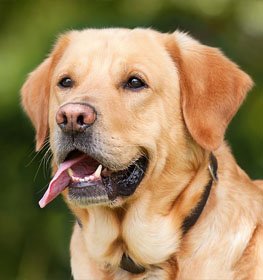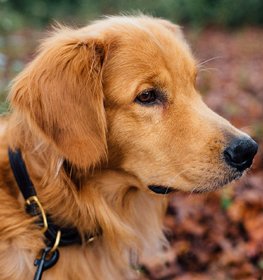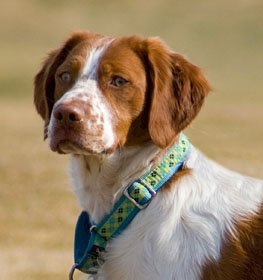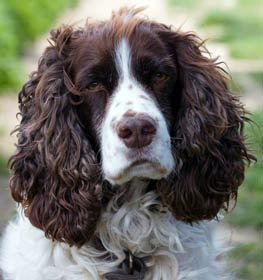German Shorthaired Pointer Information & Dog Breed Facts
Collection of all the general dog breed info about German Shorthaired Pointer so you can get to know the breed more.
| Group | Gun Dog |
|---|---|
| Popularity Rank | 10 |
| Reviews | 6 |
| User Ratings | |
|
Compare the German Shorthaired Pointer With Other Dogs
Select at least one dog breed to make the comparsion. | |
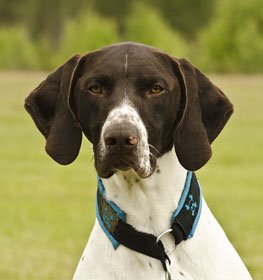 | |
| Origin | |
|
Common Names & Aliases
What other names is a German Shorthaired Pointer known by? Discover all traditional, regional and informal names used for this breed. | Deutscher Kurzhaariger VorstehhundKurzhaarDeutsch KurzhaarGSP Dog |
|---|---|
|
Breed Classification
What type of dog breed is a German Shorthaired Pointer? Learn about its genetic classification and breeding category. | Purebred |
Photo Gallery of the German Shorthaired Pointer Breed
|
Size Classification
What size category is a German Shorthaired Pointer? Learn how big the German Shorthaired Pointer breed typically grows. | LargeMedium |
|---|---|
|
Weight Statistics
How much does a German Shorthaired Pointer weigh? Discover typical weight ranges for adult males and females of the German Shorthaired Pointer breed. | Male: 55-70 pounds (25-32 kg), Female: 45-60 pounds (20-27 kg) |
|
Average Weight
What is the average weight of a German Shorthaired Pointer? | Male: 62.5 pounds (28.5 kg), Female: 52.5 pounds (23.5 kg) |
|
Height
How tall is the German Shorthaired Pointer? German Shorthaired Pointer height: | Male: 23-25 inches (59-64 cm), Female: 21-23 inches (53-58 cm) |
|
Average Height
What is the average height of a German Shorthaired Pointer? | Male: 24 inches (61.5 cm), Female: 22 inches (55.5 cm) |
|
Price Range
How much does a German Shorthaired Pointer puppy cost? Find current market prices and factors affecting German Shorthaired Pointer costs. | $600-$800 If you choose to purchase the German Shorthaired Pointer, you should know that the mentioned amount of money is an average of the collected data from breeders’ sites and puppy finder places. If you have a German Shorthaired Pointer for sale, please advertise it on a reliable website to make sure the German Shorthaired Pointer gets to a happy place. |
|---|---|
|
Availability
How easy is it to get a German Shorthaired Pointer? How many German Shorthaired Pointer are there in the world? | Very frequent: The German Shorthaired Pointer is quite easy to get. There is a risk of overbreeding, as it is an extremely popular breed. Inbreeding is common because of its popularity. A new study suggests that inbreeding contributes to the incidence of disease and health problems. So be careful, buy from a trustworthy place or kennel and seek the help of an experienced person, a professional, to make the right decision. |
|
Intelligence Rating
How intelligent is a German Shorthaired Pointer? Discover the German Shorthaired Pointer's intelligence ranking and learning capabilities. | Very smart: German Shorthaired Pointer is an excellent dog breed. You can teach them many tricks and commands. The limit is your creativity. They understand and memorize new commands in 5-15 repetitions. This breed obeys the first command 85% of the time or better.
The German Shorthaired Pointer is one of the top breeds in the dog intelligence ranking. |
|---|---|
|
Training Difficulty
How easy is it to train a German Shorthaired Pointer? Learn about the German Shorthaired Pointer's trainability and response to training methods. | German Shorthaired Pointer dogs are very easy to train. They easily find out the association between commands and actions. |
|
Watchdog Rating
How good is a German Shorthaired Pointer as a watchdog? Learn about the German Shorthaired Pointer's alertness and guarding instincts. | German Shorthaired Pointer dogs are average watchdogs. If they sense something different, they will alert you, but observation isn't considered their main job.
|
|
Territorial Protection
Is a German Shorthaired Pointer protective of its territory? Learn about the German Shorthaired Pointer's guarding instincts and behavior. | German Shorthaired Pointer dogs are average defenders. Some dogs are very protective of their territory, while others easily let a stranger to trespass. This breed is not sure to defend its territory in every situation. |
|
Personality Traits
What personality does a German Shorthaired Pointer have? Learn about characteristic German Shorthaired Pointer temperament and behavior traits. | IntelligentAffectionateTrainableBoldCooperativeBoisterous |
|---|---|
|
Sensitivity Level
How sensitive are they? German Shorthaired Pointer sensitivity: | They are a little bit more sensitive than other dog breeds. Soft punishment affects them emotionally. German Shorthaired Pointer dogs don't tolerate irregular daily routines, noisy households, and frequent guest visits really well.
They are receptive to their owner's emotions and make wonderful family companions. |
|
Affection Level
How affectionate are they? Is a German Shorthaired Pointer a good family dog? | Average to High: German Shorthaired Pointer dogs are highly affectionate dogs. They like being involved in the family's life. This breed isn't considered an aloof dog. |
|
Social Needs
How much social interaction does the Deutscher Kurzhaariger Vorstehhund need? German Shorthaired Pointer social needs: | German Shorthaired Pointer dogs need for social interaction is average. This breed likes being around people or other animals, but they don't mind being left alone for a few hours either. |
|
Impulse to Wander or Roam
How likely is the German Shorthaired Pointer to run away? Does this breed explore or wander a lot? Does German Shorthaired Pointer roam? | German Shorthaired Pointer dogs have high wanderlust potential, which means that this breed has a strong desire for exploring the world. Safer to walk them on a leash unless you teach them how to get back to you on command. This breed is also able to cause damage to your fence. |
|
Prey Drive
Do this canine have a strong prey drive? Does German Shorthaired Pointer have high prey drive? | German Shorthaired Pointer dogs have a high impulse to chase and catch something. Cats or any other small animals are in danger. It's a natural instinct, doesn't necessarily mean that German Shorthaired Pointer dogs are aggressive. Better to keep this breed on a leash. |
|
Barking Frequency
Does a German Shorthaired Pointer bark a lot? Learn about typical German Shorthaired Pointer vocalization patterns and triggers. | Average: The German Shorthaired Pointer barks occasionally. They can change their barks depending on their emotional level and what they're trying to say. Different barks could mean the same and the same barks could have different meanings.
Top reasons for barking: protection, alarm, fear, boredom, attention-seeking, greeting, separation anxiety, compulsive barking. |
|---|---|
|
Playful Nature
How playful is a German Shorthaired Pointer? Understand the typical play drive and energy level of the German Shorthaired Pointer breed. | The German Shorthaired Pointer is a highly playful breed. Excited barking and sometimes nipping will alert you to play. |
|
Apartment Adaptability
Can a German Shorthaired Pointer live in an apartment? Learn about the German Shorthaired Pointer's suitability for apartment living. | Not an apartment-friendly dog the German Shorthaired Pointer breed. If you don't have a garden, think carefully about your decision, keeping German Shorthaired Pointer indoors can cause a lot of problems. |
|
Lifestyle Adaptability
How adaptable is a German Shorthaired Pointer to lifestyle changes? Learn about the German Shorthaired Pointer's flexibility to new situations. | German Shorthaired Pointer dogs adapt well to lifestyle changes and different living environments. They don't mind moving from one place to another with their owner. |
|---|---|
|
Alone Time Tolerance
Can a German Shorthaired Pointer be left alone? Learn about the German Shorthaired Pointer's tolerance to solitude. | Just like every puppy, they are prone to panic, cry, bark, whine when they left alone by their owner. With proper socialization and quality time with the dog can solve this problem. |
|
Bite Risk Assessment
What is a German Shorthaired Pointer biting potential? Learn about the German Shorthaired Pointer's bite risk factors. | Low 🔽 The German Shorthaired Pointer has a low chance of biting somebody. Top reasons for dog bite: protection, pain, excitement, herding instinct, being provoked. (Data based on the available online bite statistics.) |
|---|---|
|
Mouthing Tendency
Is a German Shorthaired Pointer mouthy? Learn about the German Shorthaired Pointer's tendency to use mouth during play. | German Shorthaired Pointer dogs have a higher than average tendency to nip, chew, playbite, or herd people. It's a common habit during puppyhood, not aggressive behavior. These "bites" don't hurt, but German Shorthaired Pointer dogs need to be taught a good attitude. |
|
Bite Strength Rating
How strong is a German Shorthaired Pointer bite? Learn about the German Shorthaired Pointer's bite force measured in PSI. | Between 200 and 400 PSI ⏺ German Shorthaired Pointer bite force: Ordinary. Bite force German Shorthaired Pointer measurements typically fall within the range of 200 to 400 PSI. The bite force of a German Shorthaired Pointer is considered ordinary when compared to other dog breeds, but it is still quite powerful. This German Shorthaired Pointer bite force PSI can cause bite wounds. German Shorthaired Pointer bite PSI is not something that should be feared if the dog is well-trained and managed. To avoid any issues, it's essential to learn how to train a German Shorthaired Pointer puppy not to bite from an early age.
The German Shorthaired Pointer, and many others, have a fearsome presence because they have significant jaw strength, so it is important not to anger the dog and have it around strangers until it is fully trained. However, they are usually quite calm and good companions, they work well in families and are easy to care for. In conclusion, while the German Shorthaired Pointer bite force is certainly an interesting aspect of the breed, it is important not to let it overshadow the many other reasons why these dogs are so loved and respected. With proper training and socialization, a German Shorthaired Pointer can be a loyal and protective companion for your family. |
|
Average Lifespan
How long does a German Shorthaired Pointer live? Learn about the typical lifespan of the German Shorthaired Pointer breed. | 12-14 years The average lifespan of German Shorthaired Pointer: 13 years |
|---|---|
|
Climate Tolerance
How well does a German Shorthaired Pointer handle different weather? Learn about the German Shorthaired Pointer's climate adaptability. | Prefers average to warm weather conditions Different dogs have different preferences when it comes to weather conditions. However, in general, most dogs prefer average to warm weather conditions, as they typically find hot weather conditions to be uncomfortable and taxing. |
|
Health Concerns
What health issues are common in a German Shorthaired Pointer? Discover typical conditions affecting the German Shorthaired Pointer breed. | German Shorthaired Pointers are commonly healthy dogs. Vet costs aren't expensive with this breed. |
|
Vet Care Frequency
How often does a German Shorthaired Pointer need vet visits? Learn about the German Shorthaired Pointer's veterinary care requirements. | Rare The German Shorthaired Pointer should have a complete physical check-up at least every 12-18 months (but preferably once per year). If your dog shows any symptoms, call your veterinarian. |
|
Health Problems
What genetic/health problems does the German Shorthaired Pointer breed have? What are the health issues and concerns of the German Shorthaired Pointer breed? Most common health risks of German Shorthaired Pointer: | HypothyroidismProgressive retinal atrophy (PRA)Von Willebrand's DiseaseEntropionOsteochondrosis DissecansCardiomyopathyPannusGastric TorsionCanine Hip Dysplasia (CHD)Lymphedema |
|
Energy Rating
How energetic is a German Shorthaired Pointer? Understand daily activity needs of the German Shorthaired Pointer breed. | German Shorthaired Pointer dogs are high-energy dogs. An active lifestyle makes them happy. |
|---|---|
|
Activity Requirement / Exercise Need
How much exercise does a German Shorthaired Pointer need? How much exercise do German Shorthaired Pointer dogs require per day?
Do German Shorthaired Pointer dogs need a lot of exercises? | German Shorthaired Pointer dogs need a lot of exercises. Long walks should be on a daily schedule. If you live an active life, this breed can be a good choice for you. |
|
Sleeping Need
How much sleep does the German Shorthaired Pointer breed need? | German Shorthaired Pointer dogs don't need too much sleep. They are energetic and desire to live active life. If you think naps are overrated, this breed can be the best choice for you. |
|
Obesity Tendency
Is a German Shorthaired Pointer prone to weight gain? Learn about the German Shorthaired Pointer's obesity risks. | Average: The German Shorthaired Pointer has an average risk for obesity. Daily walks should be on schedule. To make your dog happy and fit, feed him with quality dry dog food and live an active life together. Try to find the happy medium between exercise and feeding.
If you notice any weight gain, consult your veterinarian and make a diet plan. Reduce unhealthy food and snacks, and measure the German Shorthaired Pointer weight regularly. |
|---|---|
|
Food Consumption
How much food does a German Shorthaired Pointer need daily? Learn about the German Shorthaired Pointer's feeding requirements. | 3 to 4 cups of high-quality dry food a day, divided into two meals. |
|
Allergy Friendliness
Is a German Shorthaired Pointer hypoallergenic? Learn about the German Shorthaired Pointer's suitability for allergy sufferers. | No German Shorthaired Pointer dogs don't do well with allergy sufferers by causing allergic reactions. Some dog breeds are even considered to higher possibility of an allergic response. Coat type isn't necessarily relevant, because most people are allergic to dander (flakes on the dog's skin) or saliva, not actually to dog hair. |
|---|---|
|
Coat Colors
What colors does a German Shorthaired Pointer come in? Discover all possible German Shorthaired Pointer color variations. | Black White LiverRoan Copper |
|
Grooming Requirements
How much grooming does a German Shorthaired Pointer need? Learn about German Shorthaired Pointer coat maintenance requirements. | Effortless: The German Shorthaired Pointer requires minimal grooming. Seasonal flea treatment is needed, but cutting the dog's hair by a professional groomer isn't necessary. Ears and eyes should be cleaned sometimes to avoid infections. German Shorthaired Pointer is one of the best choices if you don't have the time, skill, or money to take care of a high-maintenance dog. Highly recommended for beginners. |
|
Drooling Tendency
Does a German Shorthaired Pointer drool a lot? Learn about the German Shorthaired Pointer's drooling habits. | The German Shorthaired Pointer is a perfect example of a low drooling tendency. If you dislike being covered by slobber spots on your clothes, the German Shorthaired Pointer could be a good choice for you. Drooling is the unintentional saliva flowing outside of the mouth. It can be completely normal or a sign of a health problem. Certain dog breeds drool less than others, just like the German Shorthaired Pointer.
If you notice any change in your dog's drooling habit, you should contact a vet as soon as possible. |
|
Stinkiness Rating
Does a German Shorthaired Pointer smell bad? Learn about the German Shorthaired Pointer's natural odor levels. | Medium ⏺ The German Shorthaired Pointer has an average chance of bad smell. Top reasons for dog stinkiness: infection of bad tooth/ear/skin folds, gas attacks. |
|
Coat Characteristics
What type of coat does a German Shorthaired Pointer have? Learn about the German Shorthaired Pointer's fur characteristics. | Dense |
|
Bathing Needs
How often does a German Shorthaired Pointer need baths? Learn about the German Shorthaired Pointer's bathing requirements. | 4-6 weeks Average. Experts recommended at least every 4-6 weeks for this family pup. According to a study, 56% of pet parents don’t bathe their dogs as frequently as they should, and 60% use the sniff test when deciding when it’s bath time.
Bathing your dog is beneficial to them in more ways than just one. It’s also a good time to look for unusual scratches, bumps, fleas, and other irregularities. When their hair is wet and flat against their body, these details are more visible. |
|
Shedding Level
How much do German Shorthaired Pointer dogs shed? How to control, reduce and prevent the shedding of the Deutscher Kurzhaariger Vorstehhund? Do German Shorthaired Pointer dogs shed a lot? | German Shorthaired Pointer dogs shed moderately. It's a natural process of the hair growth cycle. Regular brushing reduces the amount of hair that sheds. It mostly depends on their health status and breed type. |
|
Child Compatibility
Is a German Shorthaired Pointer good with children? Learn about the German Shorthaired Pointer's behavior around kids of different ages. | German Shorthaired Pointer dogs are kid-friendly dogs. This breed is a good choice if you have children. |
|---|---|
|
Pet Compatibility
How well does a German Shorthaired Pointer get along with other pets? Discover the German Shorthaired Pointer's compatibility with other animals. | German Shorthaired Pointer dogs do best when they’re the only pet at the family. |
|
Stranger Friendly
Are they aggressive or friendly towards/with strangers? German Shorthaired Pointer temperament with other people: | German Shorthaired Pointer dogs are average friendly towards strangers. |
|
Cat Friendly
How well do German Shorthaired Pointer dogs get along with cats? Are they good with kittens? What is this fido's temperament with cats? Can they be good with cats? Can the German Shorthaired Pointer breed live with a cat? | German Shorthaired Pointer dogs are not cat-friendly dogs. |
|
Dog Friendly
Is German Shorthaired Pointer good with other dogs? Are they dog-friendly dogs? How well do German Shorthaired Pointer dogs get along with other dogs? | German Shorthaired Pointer dogs are dog-friendly dogs. If you want more dogs in your family or you'd like to join dog meetups, the German Shorthaired Pointer can be a great choice. |
|
Good For First Time Owners
Is German Shorthaired Pointer breed good for first-time owners? Do they make a good dog for novice owners? Is German Shorthaired Pointer breed suitable for first-time owners? | Yes German Shorthaired Pointer dogs are good for novice owners, due to their easy-going personality. |
|
Office Friendly
Are German Shorthaired Pointer dogs good office canines? Do German Shorthaired Pointer dogs make good office-friendly pets? Can they be office dogs? | No German Shorthaired Pointer is not the best dog breed for office environment. |
|
Senior Citizens Friendly
Are they senior citizens friendly dogs? How well do German Shorthaired Pointer dogs get along with the elderly people? What is the Deutscher Kurzhaariger Vorstehhund temperament with senior people? Are German Shorthaired Pointer dogs good for elderly owners? | German Shorthaired Pointers are usually recommended for elderly people. |
|
Service Dog Capability
Can a German Shorthaired Pointer be a service dog? Learn about the German Shorthaired Pointer's service work potential. | Not really This breed generally not used as a service dog. A service dog is a term used in the USA to refer to any type of assistance dog specifically trained to help people who have disabilities, such as visual impairment, hearing impairments, mental disorders, seizures, mobility impairment, and diabetes. Service dogs are protected under the ADA (Americans with Disabilities Act).
German Shorthaired Pointer is not the best breed for service purposes. |
|---|---|
|
Therapy Work Suitability
Is a German Shorthaired Pointer good as a therapy dog? Learn about the German Shorthaired Pointer's therapy work aptitude. | Not really This breed is generally not used as a therapy dog. A therapy dog is a dog that might be trained to provide affection, comfort, and love to people in hospitals, retirement homes, nursing homes, schools, hospices, disaster areas, and people with anxiety disorders or autism.
German Shorthaired Pointer is not the best breed for therapeutic purposes. |
|
Scent Detection Ability
Is a German Shorthaired Pointer good at detection work? Learn about the German Shorthaired Pointer's scenting abilities. | Yes After proper training, they can excel at this kind of work. A detection dog or sniffer dog is a dog that is trained to use its senses (mostly its smell) to detect substances such as explosives, illegal drugs, wildlife scat, currency, blood, and contraband electronics such as illicit mobile phones.
German Shorthaired Pointer breed is a good choice for detection purposes. |
|
Search & Rescue Potential
Can a German Shorthaired Pointer do search and rescue? Learn about the German Shorthaired Pointer's SAR capabilities. | Yes This breed would make an excellent search and rescue dog. The use of dogs in search and rescue (SAR) is a valuable component in wilderness tracking, natural disasters, mass casualty events, and in locating missing people.
The German Shorthaired Pointer breed is a good choice for SAR purposes. |
|
Maritime Work Ability
Is a German Shorthaired Pointer good on boats? Learn about the German Shorthaired Pointer's maritime capabilities. | Not really German Shorthaired Pointer breed usually doesn't like being on a boat. Boat dogs were typically bred for their strength, stamina, and water resistance, as they were often required to perform tasks such as pulling in fishing nets, and jumping into the water to retrieve ropes or lines, or helping to move cargo. Sailor dog is a type of dog that was bred to accompany sailors on their voyages. They were typically used for three purposes: as a working dog, a watchdog, and as a companion. A boat dog is a term used to describe a type of dog that was traditionally bred and used as a working dog on boats. |
|
Draft Work Capability
Can a German Shorthaired Pointer pull carts? Learn about the German Shorthaired Pointer's drafting abilities. | Not really A drafting dog or draft dog is a dog bred and used for cart pulling. Dogs bred for this work have strong builds and qualities that are needed, strength and determination.
German Shorthaired Pointer is not the best breed for drafting purposes. |
|
Military Service Background
Was a German Shorthaired Pointer used in military service? Learn about the German Shorthaired Pointer's military history. | Not really In history, this breed was not really used for combat dog. |
|
Puppy Litter Size
How many puppies does a German Shorthaired Pointer usually have? Learn about typical litter sizes. | 7-12 puppies |
|---|---|
|
Pregnancy Duration
How long is a German Shorthaired Pointer pregnant? Learn about the German Shorthaired Pointer's gestation period. | 60-64 days Reproductive cycle of the female German Shorthaired Pointer: The first period called Proestrus lasts for about 9 days.
During this time the females start to attract males. You can notice by swelling vulva and bloody discharge. The second part is the Estrus when the female is receptive for the male. It lasts for about 3 to 11 days. The sign of the proestrus part is the soft and enlarged vulva. The discharge decreases and lightens in color. The third part is the Diestrus. Normally, it occurs around day 14. In this period the female’s discharge changes for vivid red and coming to its end. The vulva returns to average, and she will no longer permit mating. The fourth part called the Anestrus. The time frame between heat periods normally lasts about six months. |
|
Breeding Frequency
How often can a German Shorthaired Pointer have puppies? Learn about safe breeding intervals. | Once a year. More frequent breeding is not healthy. It is very important not to buy a dog from a puppy mill, where the needs of the pups and their mothers are ignored. It's an inhumane high-volume dog breeding facility, where puppies born several times a year. |
|
AKC Classification
What AKC group is a German Shorthaired Pointer in? Learn about the German Shorthaired Pointer's AKC classification. | Recognized by the American Kennel Club in 1930 as a Sporting breed. |
|---|---|
|
FCI Classification
What FCI group is a German Shorthaired Pointer in? Learn about the German Shorthaired Pointer's international classification. | Recognized by FCI in the Pointing Dogs group, in the Continental Pointing Dogs section. |
|
Kennel Club Recognition
Which kennel clubs recognize a German Shorthaired Pointer? Learn about the German Shorthaired Pointer's official recognition. | American Kennel ClubCanadian Kennel ClubFederation Cynologique InternationaleKennel Club of Great BritainAustralian National Kennel CouncilNew Zealand Kennel ClubUnited Kennel Club |
German Shorthaired Pointer Pros and Cons
- Intelligence Rating: Very smart: German Shorthaired Pointer is an excellent dog breed.
- Training Difficulty: German Shorthaired Pointer dogs are very easy to train.
- Health Concerns: German Shorthaired Pointers are commonly healthy dogs.
- Grooming Requirements: Effortless: The German Shorthaired Pointer requires minimal grooming.
- Drooling Tendency: The German Shorthaired Pointer is a perfect example of a low drooling tendency.
- Lifestyle Adaptability: German Shorthaired Pointer dogs adapt well to lifestyle changes and different living environments.
- Child Compatibility: German Shorthaired Pointer dogs are kid-friendly dogs.
- Dog Friendly: German Shorthaired Pointer dogs are dog-friendly dogs.
- Senior Citizens Friendly: German Shorthaired Pointers are usually recommended for elderly people.
- Good For First Time Owners: German Shorthaired Pointer dogs are good for novice owners, due to their easy-going personality.
- Scent Detection Ability: After proper training, they can excel at this kind of work.
- Search & Rescue Potential: This breed would make an excellent search and rescue dog.
- Allergy Friendliness: German Shorthaired Pointer dogs don't do well with allergy sufferers by causing allergic reactions.
- Apartment Adaptability: Not an apartment-friendly dog the German Shorthaired Pointer breed.
- Mouthing Tendency: German Shorthaired Pointer dogs have a higher than average tendency to nip, chew, playbite, or herd people.
- Impulse to Wander or Roam: German Shorthaired Pointer dogs have high wanderlust potential, which means that this breed has a strong desire for exploring the world.
- Cat Friendly: German Shorthaired Pointer dogs are not cat-friendly dogs.
- Office Friendly: German Shorthaired Pointer is not the best dog breed for office environment.
German Shorthaired Pointer History
Fulfilling a need
In Germany, dense forests blended with open fields and housed all types of feather and fur, including grouse, rabbit, fox, deer, wolves, and wild boar. It was there that the Teutonic hunters aspired to produce a hunting dog that could effectively hunt all types of wildlife in all types of terrain available in their country. They needed a canine with a sensitive nose that could find a game from a safe distance. As most German hunters hunted on foot, they needed a dog with enough discipline and inbred instinct to stay on point once the game was discovered, allowing the hunters to close in on the target. Moreover, they wanted a hunting partner that could rescue fallen wildlife on land and in the water. In addition, the dog had to be courageous and aggressive enough to deal with and follow larger animals in the deep German forests, such as wild cats, foxes, and deer. Finally, and perhaps most crucially, these hunters desired a domestic pet who could be counted on to adequately protect the home and those inside when necessary. Keeping all of these quantities in mind, the seed of this dream was effectively planted, and the work has begun to develop such a dog.
Origins
The German Shorthaired Pointed was developed in the 19th century, but there are many different theories regarding the actual origins and ancestry of the breed. According to experts, the breed development was initiated by a cross between the old Spanish Pointer and traditional continental pointers, including the old German Pointer and the Braque Francais. Furthermore, to improve scenting abilities and soften the temperament of the new breed, German hunters decided to cross it with tracking hounds as the German Bloodhound and French Gascon. The genes of the German tracking hounds also helped to overcome many of the unpleasant or undesirable features of the traditional pointers, including reduced trailing ability, a natural dislike for water work, and a noticeable lack of aggressiveness towards predators.
However, early breeders remained dissatisfied despite all of these advancements. The dogs produced by the previous crossings were too slow in the hunt and lacked true agility. Furthermore, these hunters loved the scenting abilities that came from the Bloodhound but didn’t want their new breed to look like it. As a result, another cross with the English Pointer was made in the 1860s to improve the breed’s speed, style, appearance, and pointing instincts. All of these efforts resulted in a sleek, good-looking, clever, loyal, and versatile gundog with exceptional stamina, a keen sense of smell, a highly developed pointing instinct, and a desire to retrieve fallen game on land or in water. The German hunters now had a partner who could track and scent both furred and feathered game, point and retriever game birds, and deal with larger species such as deer, fox, and boar because he had the size, strength, and courage. Furthermore, the first studbook for the German Shorthaired Pointer as its own defined breed did not come about until 1870. Though the standard for the breed in Germany was set in 1879, many individuals out there were removed from the breeding pool as the standard set a correct type for the breed and started to standardize it.
The 20th century
As Germany became more united, the German Pointer evolved as well. Unfortunately, the two World Wars in which Germany was involved resulted in significant gaps in the breeding stock. Some kennels that thrived before the World Wars found it impossible to rehabilitate thereafter. During World War II, the fascist government-controlled hunting and the breeding of all hunting dogs with Hermann Goering minister responsible for all matters relating to both. At that time his order said that all clear white and liver dogs should be destroyed because they did not blend in with the woods like the solid liver and liver roans. There was little to no information about the kennels of East Germany as very little of the breeding stock was rescued or survived. What is known for sure is that a breeder named Gustav Machetanz has managed to escape with a few dogs ahead of the approaching Russian army and resettle in West Germany. This is very significant because one of his dogs, Axel vom Wasserschling proved to be one of the most important sires after the war and was essential in rebuilding the breed in Germany.
Outside of Germany/U.S recognition
Fortunately, before the World Wars, the German Shorthaired Pointer had also caught some American hunters’ attention. These hunters imported dogs into the United States. The breed was admitted into the American Kennel Club in 1935, and its popularity increased in 1938 in Minnesota and Wisconsin, which allowed dedicated breeders to apply to the AKC for a club status, which resulted in the formation of the German Shorthaired Pointer Club of America. This sparked a wave of significant revisions in the breed standard. The first was in 1946, again the following year in 1947, along with several more. The last and most recent being in 1992.
Latest German Shorthaired Pointer Compares
German Shorthaired Pointer Names
How old is my German Shorthaired Pointer in human years?
You May Also Like
Rate The German Shorthaired Pointer Breed
German Shorthaired Pointer Comments, Reviews and Questions
- Strace
Jun 12, 2025, 7:04:15 PM:
My GSP is strong, rough & has more stamina than my doberman. Not as easy to train as dobie. GSP is driven, jovial, ultra high energy. A 4 rating is high for elderly & small child compatibility. Intrinsic hunter, difficult on leash for long periods.
- Lori Vrbanac
Dec 28, 2022, 9:37:19 AM:
Thought He was lost; didn’t find for 1 1/2 hrs Found on point standing nearly 90 degree nose down huge quail covey out of wind on a steep path Held point so long his leg muscles trembling. Fantastic!
- Nia
Feb 25, 2022, 6:45:51 AM:
- German shorthaired pointer puppy owner
May 29, 2021, 6:46:12 AM:
The best dog ever! He is so smart and he is the cutest
- german short hair pointers
May 8, 2020, 2:12:59 AM:
best dog i’ve ever had and i’ve a lot of dogs
- Holly
Apr 15, 2020, 1:54:20 AM:
Amazing dogs! Really love them
















